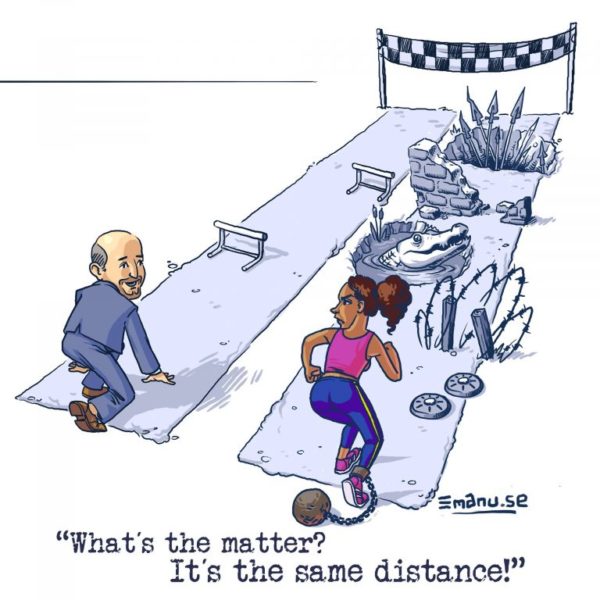Why we’re not celebrating International Women’s Day
Over the last few weeks, we have been receiving countless invitations to special events and celebrations to mark International Women’s Day – so many that it is impossible to even attempt to attend them all. While the effort involved is laudable, especially since such activities raise general awareness, we do feel that it is important to consistently maintain momentum during the remaining 364 days of the year.
Gender equity should be considered and planned, instead of having to be highlighted as a special issue. In our field of economic empowerment, a major objective is to ensure that women have the opportunity to contribute to the economy, whether that be through employment, through care – looking after children and older relatives, as self-employed or a small business owner. Despite laws and regulations aimed at ensuring equality before the law, women – and in particular women entrepreneurs – are affected differently to men, often because of sociocultural differences and gender stereotypes, hence the potential impact of economically empowered women on GDP and society is under-realized.
As part of a multi-faceted approach, this can mean adapting existing support to suit women entrepreneurs’ requirements or changing the marketing message to show that women are recognized. It means creating local ecosystems that support enterprising and entrepreneurial women, something we are currently addressing in partnership with Societal Innovation & Enterprise Forum (SIEF) and Gender & Enterprise North East (GENE).

At ICE we have spent many years supporting women around the world in the development of business and soft skills as well as helping them to develop the necessary social capital. But this is only part of the story. It is important to stress that supporting women’s economic empowerment is not about “fixing” women, but rather an issue needing to be addressed both at policy level and in grassroots support. In partnership with Women’s Economic Imperative we advocate for policies that take gender-based differences into account. That means always disaggregating statistics, so that the multiple and evolving roles played by women are highlighted. It means monitoring and evaluating initiatives with a gender lens in order to ensure that the target population actually benefits, and any unconscious shortcomings can be identified and reacted to.
So, here’s our challenge to you – what can you do to ensure that the awareness raised as well as the interest and motivation generated on International Women’s Day turn into daily actions throughout the year?
